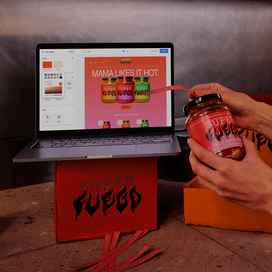Table of contents
What is pre-ordering?
Pre-ordering refers to purchasing a product or service before it is officially released or available for sale to the general public. It allows customers to reserve and secure their desired item in advance, often with a deposit or full payment, ensuring they will receive it as soon as it becomes available.
By allowing customers to reserve and pay for products before they are officially released or available, your business can generate excitement and anticipation while securing sales in advance.
What are the benefits of pre-ordering for your business?
Cash flow improvement
Pre-orders allow you to collect payment from customers before the product is released or shipped. This can help improve your cash flow by providing an influx of revenue up front, which can be especially beneficial if your business requires significant investment in production or inventory.
Market demand validation
Launching a new product with pre-orders helps you gauge market demand before investing heavily in production. If you receive strong pre-order numbers, it indicates sufficient interest in your product, giving you the confidence to proceed with large-scale production.
Anticipation and exclusivity
Pre-orders create excitement among customers as they get the chance to be among the first to own a highly anticipated product. By offering exclusive access or limited quantities during the pre-order phase, you can generate even more interest and anticipation.
Inventory management
By offering pre-orders, you can better estimate customer demand and adjust your inventory accordingly. This helps minimise overstocking or understocking issues, reducing potential losses and maximising profitability.
Customer engagement
Pre-orders offer an opportunity for businesses to engage directly with customers throughout the process – from announcement to release date – building anticipation, marketing opportunities and customer loyalty along the way.
1. Nail your pre-order offer
Customers will pay all or a part of the purchase price up front, so they need strong incentives. This could be exclusive bonuses or perks or bundling with products that are already popular, helping to add to the hype and customer demand.
Think through how you want to receive payments. Will customers pay full price upfront? Or will you accept payments through buy now, pay later (BNPL)?
BNPL is particularly popular among Gen Z shoppers and may be worth considering if you cater to this customer group. With Square, you can easily enable BNPL payments from Afterpay both for in-store and online sales.
3. Promote the pre-order
An effective promotion campaign is crucial for your pre-order sales success. Start the promotion process early, even before you officially launch the pre-order. For example, you can tease your audience with sneak peeks, behind-the-scenes content, or product previews. Use social media, your website, email marketing and SMS campaigns to build anticipation. With Square Marketing, you can send personalised, one-time or automated email and text campaigns to promote pre-orders.
Consider offering early-bird discounts or exclusive bonuses for customers who pre-order. Limited time offers create a sense of urgency and motivate potential customers to take action sooner rather than later.
4. Stop pre-orders on the due date
If you announced that pre-orders will end on a specific date, be sure to follow through on that promise. Sticking to your pre-order deadline demonstrates reliability and transparency to your customers. This builds trust, safeguards your reputation and fosters a sense of credibility within your target audience.
In contrast, extending pre-order deadlines can hurt your sales in the future. Customers who believe you are merely creating artificial scarcity around your pre-order may delay their purchase decisions, thinking they can always buy later. This delay can result in lost sales.
5. Deliver products on the launch date
Finally, once the product becomes available, deliver items to customers as promised. Communication is key when selling pre-orders. If you anticipate production or delivery delays, be sure to inform your customers. This can help manage expectations and reduce any potential frustration.
Delays in product delivery can lead to negative feedback and online reviews, which can harm your brand’s reputation and deter potential customers from making future purchases. On the flip side, timely delivery can generate positive reviews and word-of-mouth recommendations.
6. Take stock of what worked and what didn’t
Assessing the performance of your pre-order campaign helps you improve future campaigns. For example, if you are a Square customer, you can glean insight from sales data, email statistics and other reports available via Square Analytics. You can see when your pre-orders sold the most and which email or text campaigns drove the most sales.
You can also collect direct feedback from customers. For example, you can send surveys to pre-order customers to gather their opinions on the process, product quality and overall experience. Monitor online reviews and social media mentions related to your product. Address concerns or issues promptly and use the feedback to enhance future offerings.
Get started with pre-ordering
Pre-orders represent a potent strategy to boost revenue, engage and excite your customers. They offer a unique opportunity to build anticipation, secure sales and refine your products and marketing efforts.
When executed effectively, pre-orders can be a win–win strategy for both customers and businesses. By continuously analysing and adapting your strategy, you’ll be better equipped to run successful pre-order campaigns, boost revenue and meet the evolving needs of your customers. Learn more about managing pre-orders with Square Online.
This article is for informational purposes only and does not constitute professional advice. For specific advice applicable to your business, please contact a professional.
![]()











